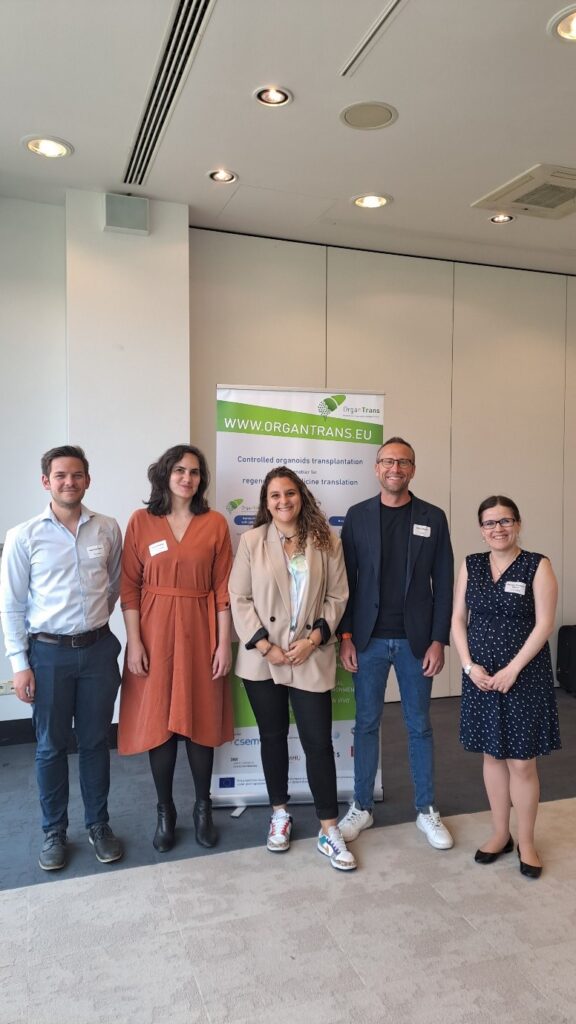Clustering four cutting-edge projects!
During our Regenerative Medicine Workshop in Prague, Czech Republic, on June 1, 2023, we had the privilege of clustering four cutting-edge projects (ORGANTRANS, AMELIE, PREMSTEM, JOINT Promise).
All of them are funded by the European Union under the same Horizon2020 topic call titled SC1-BHC-07-2019 – Regenerative medicine: from new insights to new applications.
The workshop provided an invaluable platform for representatives from these projects, coming from four different countries (Switzerland, England, France, Belgium) to interact, network, and exchange their experiences and challenges faced in their respective fields of research. Through engaging discussions during the session and in the networking spaces, they explored innovative solutions and fostered collaborations to overcome obstacles and drive advancements in regenerative medicine.
Gilles Weder (CSEM, Switzerland) presented the groundbreaking #ORGANTRANS project that addresses the growing need for liver transplants, which are the only effective treatment for various liver diseases, causing 2 million deaths annually worldwide. To date, only 10% of transplantation needs are met. Targeting chronic end-stage liver diseases and residual healthy tissues, ORGANTRANS combines autonomous self-assembly with biomimicry. The project relies on organoid technologies as building blocks, complemented by bioprinting for the recreation of the architecture of the tissue for vascularisation. Additionally, this research created novel technologies that can be applied to other organ systems and tissues in the field of regenerative medicine.
Chara Simitzi (University College London, England) unveiled the remarkable AMELIE project, which targets obstetric sphincter injuries that occur in 5.5% of postpartum women, and the current surgical management is not appropriate for all patients. AMELIE is developing a novel tissue engineered product consisting of autologous skeletal muscle cells attached to microspheres for the treatment of obstetric trauma induced incontinence.
Cindy Bokobza (INSERM, France) shed light on the PREMSTEM project, which focuses on regenerative #stemcelltherapy for repairing #braindamage caused by #prematurebirth, that might affect to the 15 million babies that are delivered prematurely every year. PREMSTEM project evaluates human mesenchymal stem cells to repair the preterm brain. In addition to migration capacity and regenerative properties, mesenchymal stem cells are immunosuppressive, anti-inflammatory and enable relatively simple and minimally invasive access via the umbilical cord.
Isaak Decoene (KULeuven, Belgium) took the audience on a journey through the @JOINT Promise project, unveiling the fascinating world of complex #jointimplants that enables regeneration within the body and holds great promise for individuals seeking relief from #joint-related ailments. There is no joint defect treatment leading to permanent regeneration for the time being. The project is setting up an end-to-end automation platform for the manufacture of complex organoid-based implants.
Four perspectives, with four outstanding developments that try to solve four different clinical needs: chronic liver disease, sphincter muscle disfunction, brain damage in neonates and joint-related diseases. These solutions will benefit from newborns, postpartum women, to the people that suffer joint issues or liver disease. These projects are solutions for treating and managing disease and disability, improving the European Commission objective of the SOCIETAL CHALLENGES in Health, demographic change and well-being.






